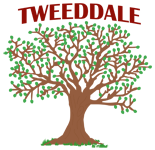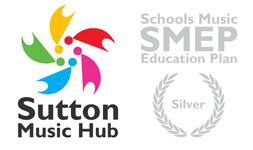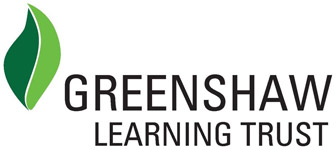Curriculum Overview
Curriculum Intent: Our Curriculum and Values
**The Tweeddale Vision is ‘High Aspirations, Broad Horizons’. **
We chose the Cornerstones curriculum for English and most arts and humanities subjects as it best allows us to achieve that vision, by providing an integrated, topic-based approach to learning, which allows us to teach knowledge and skills in equal measure. The Cornerstones curriculum allows us to broaden pupils’ horizons, while encouraging them to raise their own aspirations.
The wide range of topics covered by Cornerstones (including English, science, geography, history, design & technology and art) gives children knowledge about people, places and events that may otherwise be outside of their experience. This will then pique their interest and fire their curiosity.
For maths, we follow the White Rose scheme as this provides the curriculum coverage needed to scaffold all learners in making progress.
Cornerstones also allows us to enhance children’s sense of diversity and inclusivity. Tweeddale is a very diverse school with around 15 different home languages (it fluctuates as the cohorts evolve and move through the school) so we chose a curriculum that not only reflects modern Britain but the wider, modern world; children should see themselves represented in our curriculum.
In the accompanying statement for each area of the curriculum, we have highlighted a number of ways in which the way we deliver each subject can be related to our values. These values have been agreed by all staff, based on the letters of the word ASPIRE. The wording deliberately places the children themselves at the forefront of everything we do.
Ambitious children who want to achieve
Safe children who demonstrate self-control
Positive children who persevere
An inclusive school that will inspire everybody
Respectful children who will become responsible adults
Enthusiastic children who are always engaged
These values also form part of our behaviour and rewards system: children who have produced outstanding work or demonstrated the values in ways which go above and beyond the norm may be rewarded with a special ASPIRE certificate in celebration assembly each Friday. In addition, at the end of the year, each class teacher will nominate a child in their class who they think has best exemplified our values over the whole year, considering behaviour, achievement, progress and attitude.
“The framework for setting out the aims of a programme of education, including the knowledge and skills to be gained at each stage (intent).” Ofsted Education Inspection Framework 2019
Curriculum Implementation: What we do and why
The topic-based approach of Cornerstones encourages regular overlaps between subjects and skills: for example, the children might be writing a story set in a particular and specific location (English/geography) or painting in the style of a certain historical figure (art/history). Furthermore, the curriculum is designed to teach skills that are repeatedly used, and therefore enhanced, in different contexts as children move up the school.
The ten teaching principles of Barak Rosenshine are at the heart of lessons at Tweeddale, and indeed across the GLT as a whole:
- Daily review.
- Present new material using small steps.
- Ask questions.
- Provide models.
- Guide Student practice.
- Check for student understanding.
- Obtain a high success rate.
- Provide scaffolds for difficult tasks.
- Independent practice.
- Weekly and monthly review.
Following these proven and widely acknowledged principles allows our learners to experience success at all stages before moving on with new material. They also allow teachers to improve their own practice. The small steps, modelling and regular review and practice model ensures that they both learn more and remember more.
The White Rose Curriculum, as part of the Cornerstones offering, provides the basis and outline of our maths curriculum, while also being tailored and further scaffolded to the needs of children of all abilities, in each year group. This means we take the White Rose resources as a starting point for lessons, but tailor and supplement them to meet the wide range of needs in each class, while ensuring that pitch and expectation of lessons are as high as possible.
“The translation of that framework over time into a structure and narrative, within an institutional context (implementation)” Ofsted Education Inspection Framework 2019
Curriculum Impact: How we know it works
The impact of our curriculum is measured in a wide variety of ways. Most importantly of all, it is evidenced through the ongoing process of teacher assessment: every question answered, every piece of work assessed and every test taken – they all allow us to assess the impact of what we teach our children.
The impact of the school’s curriculum can be seen in the books they produce and the outcomes for all groups of pupils within the school. Everything we do is with the child at mind, and strong relationships are built between pupils and staff which create an atmosphere for learning which is conducive to success.
Pupils’ progress is measured through ongoing assessment and through three key assessment points during the year. Work is planned to address misconceptions and gaps in learning are identified to ensure that the curriculum effectively meets the needs of all pupils.
Furthermore, the impact of the curriculum is felt in ways which can’t always be measured: that children are well-motivated and engaged in their education with a growing knowledge base which prepares them for effective transition for their next stage in learning and equips and motivated them for life.
The curriculum is continuously under review to ensure we provide the best offer for our children and planning grids will be updated as they are developed.
“The evaluation of what knowledge and skills learners have gained against expectations (impact)” Ofsted Education Inspection Framework 2019
If you would like to find out more about our curriculum then please contact Mr G Dix or for Foundation stage Miss R Digman. They can be contacted via email at office@tweeddaleprimary.sutton.sch.uk









